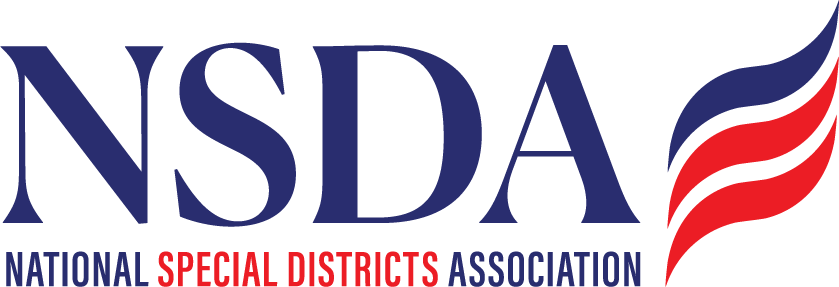Federal Advocacy Update: March 24, 2025
.jpg?ixlib=rb-1.1.0&w=2000&h=2000&fit=max&or=0&s=189c82e2c04ea2ddc9a33365f7882eb5)
House, Senate Focus Shifts to Budget Reconciliation
After a week-long recess, the House and Senate gaveled into session earlier today. Just before the break, Congress approved a six-month stopgap spending measure (or "Continuing Resolution") to keep the federal government funded through September 30, 2025. With the fiscal year 2025 appropriations process in the rearview mirror, the focus shifts back to the high-profile budget reconciliation process.
The budget reconciliation process is a legislative tool that allows Congress to expedite certain tax, spending, and debt limit legislation by bypassing the Senate filibuster and passing with a simple majority. It is typically used when one party controls both chambers of Congress and the White House. However, the process must begin with the adoption of a budget resolution – a legislative blueprint that outlines key priorities and sets spending targets. At this point, the House and Senate have each passed separate versions, which must be reconciled before the reconciliation process can proceed.
The House-passed resolution is broader in scope. It merges several high-priority initiatives – including energy, defense, and border security measures – with a proposed extension of the 2017 tax cuts. It also directs the relevant authorizing committees to draft legislation achieving at least $2 trillion in deficit reduction over 10 years, primarily through changes to entitlement programs (i.e. Medicaid, SNAP, TANF, etc). At the same time, it allows for up to $4.8 trillion in deficit increases to accommodate the proposed tax cut extension.
The Senate’s budget resolution is more narrowly focused. It proposes $350 billion in new spending over ten years, specifically targeting defense and border security, but it delays decisions on complex tax policy changes until later in the year. Senate Republican leaders have intentionally taken a more cautious approach to avoid triggering internal divisions, particularly around the scope and structure of any potential tax cut extensions or entitlement reform proposals.
In an effort to find common ground, Republican leaders from both chambers are scheduled to meet on Tuesday to begin formal negotiations. Speaker Mike Johnson (R-LA) has signaled his intent to bring a final reconciliation package to the House floor before the Easter recess, a move that could place added pressure on Senate Republicans to align with the House version – or risk tensions with the White House. Under Johnson’s proposed timeline, the Senate would take up the final package by the end of April, setting the stage for swift action on the president’s legislative agenda.
However, many Senate Republicans remain skeptical that the process will advance as quickly as House leadership hopes. Senate Majority Leader John Thune (R-SD) has acknowledged that while he aims to move a budget resolution before the April recess, final passage of reconciliation legislation may be delayed until late July – or even as late as September, depending on how negotiations unfold.
.jpg?ixlib=rb-1.1.0&w=2000&h=2000&fit=max&or=0&s=8be6052790c4538be5f0ffc59bec4648)
HUD, Interior Launch Joint Effort to Expand Affordable Housing Supply
Last week, Housing and Urban Development (HUD) Secretary Scott Turner and Interior Secretary Doug Burgum announced a new federal initiative aimed at tackling the nation’s housing affordability crisis. The plan calls for identifying underutilized federal lands that could be made available for affordable housing development. As part of the effort, the administration has established a joint HUD-Interior task force to streamline the federal land transfer process and reduce regulatory delays that often stall housing projects. The goal is to boost housing supply and lower building costs by removing bureaucratic roadblocks.
More information can be found here.
.jpg?ixlib=rb-1.1.0&w=2000&h=2000&fit=max&or=0&s=a28a20672f994a1744d388d6d262ef43)
Senate Introduces Bipartisan Disaster Assistance Simplification Act
Senators Gary Peters (D-MI) and Rand Paul (R-KY) recently reintroduced bipartisan legislation – the Disaster Assistance Simplification Act (S. 861) – that would help streamline the federal disaster aid process for survivors. Specifically, the measure would require FEMA to create a universal application for all federal disaster programs, eliminating the need for survivors to submit multiple applications to different agencies. This streamlined process is intended to reduce administrative burdens and accelerate recovery.
In addition, the legislation would authorize FEMA to securely share applicant data with other federal agencies involved in disaster response, helping coordinate services and prevent delays. It should be noted that the bill includes provisions to ensure that all data sharing complies with strict federal privacy and security standards, protecting the personal information of those affected by disasters.
More information on the bill can be found here.
Relevant Hearings & Markups
Tuesday, March 25 | 10 a.m. House Transportation and Infrastructure Subcommittee on Economic Development, Public Buildings, and Emergency Management hearing on "Reforming FEMA: Bringing Common Sense Back to Federal Emergency Management."
Tuesday, March 25 | 10 a.m. House Foreign Affairs Africa Subcommittee hearing on “Metals, Minerals and Mining: How the CCP Fuels Conflict and Exploitation in Africa.”
Tuesday, March 25 | 10:15 a.m. House Education and Workforce Workforce Protections Subcommittee hearing on “The Future of Wage Laws: Assessing the FLSA’s Effectiveness, Challenges and Opportunities.”
More details on House Education...
Tuesday, March 25 | 10:15 a.m. House Natural Resources Water, Wildlife and Fisheries Subcommittee legislative hearing on four measures: Gulf of America Act of 2025 (H.R. 276); Pet and Livestock Protection Act of 2025 (H.R. 845); the ESA Amendments Act of 2025 (H.R. 1897); and the Great Lakes Mass Marking Program Act of 2025 (H.R. 1917).
Wednesday, March 26 | 9:30 a.m. House Appropriations Transportation-HUD Subcommittee oversight hearing of the National Transportation Safety Board.
